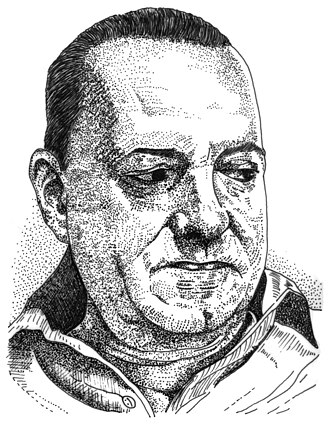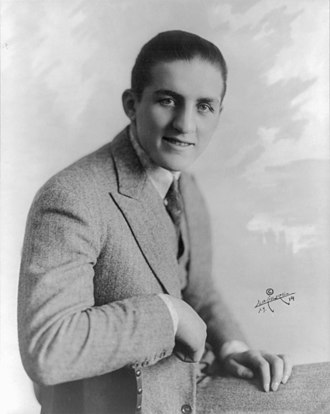Carpentier Last Name Origin, History, and Meaning
Where did the surname Carpentier come from? What does the surname Carpentier mean? Discover the history and meaning of the last name Carpentier and family migration on YourRoots Map.
Surname Carpentier Origin: What does the last name Carpentier mean?
The surname Carpentier is of Norman-Picard origin, derived from the French word Charpentier and similar to the English surname Carpenter. It can be traced back to Late Latin, where carpentarius means "artifex" or "wainwright." The name first appeared in records from England in the early 12th century and grew significantly in France from the 12th to the 15th centuries before spreading to Canada in the 16th century. By the 20th century, the Carpentier surname became prominent in Canada and remains so to this day, with records also found in countries like France and England.
YourRoots data confirms the historical presence of the Carpentier surname in France and its subsequent spread to Canada, reflecting its global reach over the centuries. Today, the name continues to be prevalent in Canada and appears in various countries worldwide, showcasing its enduring legacy and widespread use. The Carpentier surname signifies a connection to skilled craftsmanship and historical roots that have transcended geographical boundaries and cultural distinctions over time.
Carpentier Last Name History: Where did the last name Carpentier come from?
Origin of Carpentier Surname: Where does the last name Carpentier originate from?
According to YourRoots data, the surname Carpentier first appeared in records from England around the early 12th century. Please note that this reflects only YourRoots data for the exact Carpentier spelling and does not include other record sources or surname variations.
History of the Last Name Carpentier: What does the Carpentier surname history look like in the early days?
The Carpentier surname started growing significantly in France from the 12th to the 15th centuries and later spread to Canada in the 16th century. YourRoots data also shows Carpentier family records in countries like Canada, indicating global spread over the centuries.
Global Spread: Where can we find the Carpentier surname today?
By the 20th century, the volume of records with the Carpentier surname grew significantly in Canada. The Carpentier surname remains prominent in Canada. It appears in many countries, including France, England, and other regions.
Explore Carpentier last name heritage and Carpentier surname origin based on YourRoots Map data
 VIEW THE ORIGIN OF SURNAME CARPENTIER
VIEW THE ORIGIN OF SURNAME CARPENTIERFamous People With Carpentier Surame?

Alejo Carpentier
Alejo Carpentier y Valmont (Dec 26, 1904 – Apr 24, 1980) was a Cuban novelist, essayist, and musicologist known for his influence on Latin American literature. He coined the term "lo real maravilloso" and was a key figure in the magical realism movement. Carpentier's work often depicted Afro-Cuban culture and explored themes of politics, music, and social injustice. He integrated Baroque and Surrealist styles into his writing, shaping the artistic vision of Latin America. His notable novel "El reino de este mundo" delves into the Haitian revolution. Carpentier's legacy continues to inspire younger writers and artists in the region.

Georges Carpentier
Georges Carpentier (12 Jan 1894 – 28 Oct 1975) was a French boxer, actor, and World War I pilot. He fought in various weight categories, becoming the European heavyweight champion before WWI. Known as "le grand Georges," he gained worldwide fame for defeating Battling Levinsky in 1920 to become world champion. Despite a loss to Jack Dempsey, he remained a symbol of French sporting prowess. Carpentier's career declined after a controversial defeat to Battling Siki. Post-retirement, he pursued vaudeville, music, and acting, starring in silent films and talkies. His legacy lives on as one of France's top boxers.

Édouard Carpentier
Édouard Ignacz Weiczorkiewicz (July 17, 1926 – October 30, 2010) was a French and Canadian professional wrestler, gymnast, and member of the French Resistance during World War II, known by his ring name, Édouard Carpentier. Carpentier held multiple world heavyweight championships, known for his high-flying wrestling style and athletic manoeuvres. He later became a colour commentator for wrestling programs like Lutte Internationale and the World Wrestling Federation (WWF).
Born in Roanne, France, Weiczorkiewicz developed an interest in gymnastics and wrestling from a young age. During World War II, he joined the French Resistance and was awarded medals for his service. He later became a successful wrestler in Europe and North America, capturing the NWA World Heavyweight Championship and headlining events at Madison Square Garden.

Patrick Carpentier
Patrick Carpentier (August 13, 1971 - ) is a Canadian former professional auto racing driver known for his success in the Champ Car World Series and the IndyCar Series. With five wins and 24 podiums, he achieved two third-place championship finishes. Carpentier made a name for himself by setting records in the Player's Toyota Atlantic Championship, leading him to a successful career in the major league Indycar series. Despite facing challenges, he persevered and continued to impress with his racing skills. After retiring from open-wheel competition, he shifted his focus to business ventures and became a well-respected figure in the racing community.

Alain Carpentier
Alain Frédéric Carpentier (born 11 Aug 1933) is a renowned French cardiac surgeon known as the "father of modern mitral valve repair." He developed groundbreaking techniques, including the first minimally invasive and robotic mitral valve repairs. Carpentier received the prestigious Lasker Prize in 2007 and is a member of the French Academy of Sciences. His innovative work in cardiac surgery has earned him global recognition, including the establishment of cardiac centers in Vietnam and Africa. Carpentier continues to advance the field with projects like the fully implantable artificial heart. His contributions have revolutionized cardiac care worldwide.
All images displayed on this page are sourced from Wikipedia or Wikimedia Commons.We use these images under their respective Creative Commons or public domain licenses. Wherever applicable, author attributions and license information are provided. If you believe an image is used incorrectly or outside its license terms, please contact us so that we can review and correct the issue.




.png)